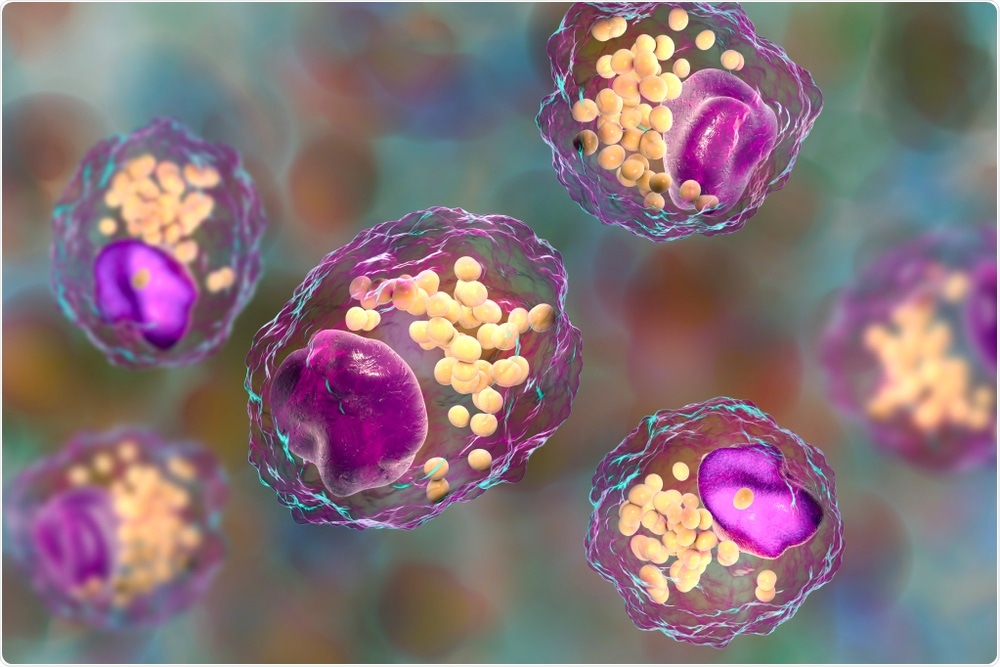Macrophages are important cells of the immune system with numerous beneficial functions. However, macrophages also aggravate numerous common diseases.

Image Credit: Kateryna Kon/Shutterstock.com
Macrophages that are polarized, or activated, into a type named M1 inhibit the growth of tumors and blood vessels. But M2-type polarized macrophages intensify tumor growth and induce diseases like “wet” age-related macular degeneration (AMD)—the principal cause of blindness. Moreover, M2-type macrophages encourage tissue fibrosis and add to allergic and parasitic diseases.
It is not yet known how macrophage polarization into the M1- versus the M2-type takes place. Recently a group of scientists from the Massachusetts General Hospital (MGH), headed by Alexander G. Marneros, MD, Ph.D., an investigator at the Cutaneous Biology Research Center at MGH, unraveled the signaling mechanisms and changes in cell metabolism that take place at the time of macrophage polarization in unparalleled detail.
The researchers combined the observations with their results from drug screens to reveal that it is possible to selectively block M2-type polarization without affecting M1-type macrophages. This exhibited a clear benefit in a mouse model of “wet” AMD.
The study was published in the Cell Reports journal.
Because these two macrophage types can have opposing effects on various common diseases, it would be important therapeutically to selectively inhibit M2-type macrophage polarization without blocking M1-type polarization.”
Alexander G. Marneros, Cutaneous Biology Research Center, Massachusetts General Hospital
Marneros is also an associate professor of Dermatology at Harvard Medical School.
In many diseases both populations of macrophages are present, but one is predominant. For example, M2-type macrophages are increased in the eyes of patients with wet AMD. But if we can shift the balance from M2- to M1-type macrophages, this would mean that we could influence disease outcomes through new therapies.”
Alexander G. Marneros, Cutaneous Biology Research Center, Massachusetts General Hospital
Marneros and his colleagues identified drugs that can selectively obstruct M2- but not M1-type macrophages. Remarkably, these drugs are already in clinical use for other indications and can hence be repurposed for this use.
Among the most potent inhibitors of M2-type macrophage polarization were two groups of medications called MEK inhibitors and HDAC inhibitors.”
Alexander G. Marneros, Cutaneous Biology Research Center, Massachusetts General Hospital
The experience of practitioners in using these drugs for other indications renders them specifically promising as new therapies in diseases aggravated by M2-type macrophages.
The new understanding of the specific cellular changes occurring with M1- versus M2-type macrophage polarization offered in the current research provides interesting novel therapeutic opportunities.
Source:
Journal reference:
He, L., et al. (2021) Global characterization of macrophage polarization mechanisms and identification of M2-type polarization inhibitors. Cell Reports. doi.org/10.1016/j.celrep.2021.109955.